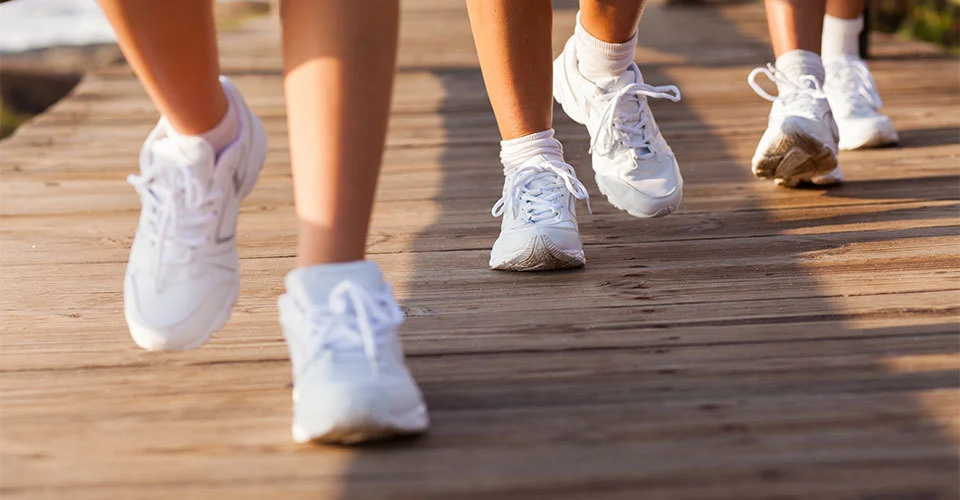Running is incredibly healthy. It strengthens the body, boosts happiness, improves cognitive functioning, and can help prolong life.
Each time the feet strike the ground, the weight-bearing joints have to absorb this force. That’s a very heavy burden. The shock from this impact is felt in the feet and travels up our spine. This can cause stress and strain on the joints, which can lead to pain and injury over time.
If you’re running wrong, it can put a strain on your joints and other areas of the body, including your feet. Continue reading to learn how to combat the detrimental effects that running can have on your feet so you can keep this cardio hobby for years to come.
How to Get Started Running
If you’re new to running, or returning after taking time off, you probably have lots of questions: What to wear? How far to run? How fast? How often? What to eat and drink?
What should I wear?
Follow the “10 degrees” rule: Dress as though it’s 10 degrees (Fahrenheit) warmer than what the thermometer says. So, if it's 30 degrees, dress for 40 degrees. Running warms you up!
Your running shoes should have fewer than 500 miles of wear. Don’t run in tennis, gardening, or casual sports shoes—they lack the support you need to repeatedly land on a hard surface. Book an appointment, we can help you choose the right shoes.
How far should I run?
Think minutes, not miles, and aim for 20–30 minutes of continuous activity for your first few workouts. Unless you’re fit from another aerobic sport, start by alternating 2 minutes of brisk walking and 2 minutes of easy running for those 20–30 minutes. What’s “easy”? You should be able to speak in full sentences. If you feel breathless, ease up.
Should I run every day?
No. Very few runners do, even at the sport’s top levels. Start with every other day (even if you're walk-running), so your body has 48 hours to recover between efforts. You can do something else on alternate days if you wish, such as cycling, swimming, or a strength workout, but take at least one day a week completely off.
What if something hurts?
Most new runners feel some mild muscle soreness, most commonly in the front (quads) and back (hamstrings) of the thighs, and/or in the calves. This soreness is normal and will usually go away a day or two after each run. It will also lessen over time as your muscles adjust to running. If something hurts enough to cause limping, take a couple of days off, gently stretch and massage the area, elevate it, and apply ice (wrapped in a towel, or an ice pack) for 10 minutes, several times a day.
If you're still in pain after a week of self-treatment, it's a good idea to seek medical attention.





